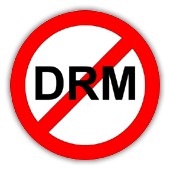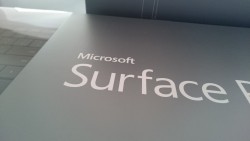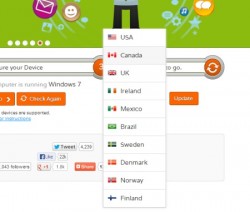I got my Surface Pro 3 on Friday, so I haven’t had enough time to set it up yet as my primary work computer. My initial impressions are very positive though, it’s such a nicely built, lightweight and versatile device, and the Type Cover and the excellent kickstand means it’s more than capable in laptop mode. And with the separately sold dock, there’s no reason why it can’t be a desktop replacement as well. The negative? I still don’t like Window 8 (even with the 8.1 update).
So this week’s WNR is still bought to you by my old trusty (and a bit rusty) Core 2 Duo E8500, which, after nearly 6 years, is still more than adequate for work (and some games, courtesy of a mid-life Radeon 6850 upgrade). Let’s get started …
![]()
While the pre-release leak of the first four Game of Thrones episodes prevented the season premier from breaking single swarm records, as people downloaded both before and after the first episode aired, and from different torrents, but after a week of downloads, there’s no escaping the fact that Game of Thrones piracy is still on the rise.
The leaked episodes, plus the post-broadcast uploads (and even a documentary on the show itself), when combined, totaled 32 million downloads in the first week alone, setting a new download record.

It’s hard to upload a new screenshot for season 5 without the risk of spoilers, so here’s one from season 4
While at first this seems like bad news for HBO, the fact that official ratings for the show is up, meant that the increased downloads is more just a healthy sign of the show’s growing audience, rather than a slide towards piracy oblivion. Many of those that did download the new episodes were in the US, and are prime candidates for HBO’s new unbundled streaming platform, HBO Now. How to convert piracy traffic to paying subscribers may take some more tweaks in pricing and value, but I’m sure by this time next year, we’ll be looking at a different downloading paradigm.
Or maybe people will be watching the show, illegally, some other way. Twitter’s newly launched live streaming app Periscope has apparently been put to “good” use by enterprising pirates, to share the broadcast of new season premier with friends and strangers alike. HBO was not best please, issuing take-down notices and warning Twitter to get their act together and allow rights-holders to more efficiently remove streams.
With almost all anti-piracy efforts on torrents and direct downloads, it just goes to show that if people want to watch something for free, they’ll find a way to do it. The key is to convince people what you have is worth paying for, and at a price that they’re willing to pay.
——
The next couple of stories all come via leaked Sony emails, more of which were recently published by Wikileaks. First up is the rather ironic story of the MPAA pirating clips from a Google commercial for their own promotional purposes. This is the same MPAA that has painted a target on Google, labeled them as public piracy enemy number one, and proceeded to attack the search engine (not always directly) whenever it can. The MPAA inserting themselves into where the general public feels they don’t belong is something that’s directly responsible for the group’s poor public image – the very same public image they were trying to repair with their pirated promo video. Oh, the irony!
The leaked emails also reveal other activities that won’t make the public like Hollywood much better. There seems to be a renewed effort from Hollywood to ban geo-dodging services, such as VPNs and smart DNS solutions used to access the likes of Netflix in places where there’s no Netflix (or access the international version of Netflix, which often yields a lot more content). This is despite a well known fact that if these services weren’t available, the same users would probably just rely on pirated streams and downloads. It’s Hollywood’s new way of punishing people that actually want to give them money (but just not as money as they want, or paid so in a way that allowed other companies to make some money too, both of which Hollywood find unacceptable).
The leaked emails exposes all the ways the MPAA has set out to put pressure on Netflix and others to ban VPN usage. The MPAA and their cohorts even went as far as threatening to sue ISPs that offered VPN services to their customers, despite VPNs being commonly used for many other purposes, including telecommuting. And even for things like watching Netflix, it’s still unclear if this even constitutes copyright infringement – a breach of the terms of service, yes, but the fact that people are paying (so it’s more like grey imports, rather than outright piracy) and that streaming is different to torrenting (as streaming does not have an upload component), means that Hollywood’s threats may not have a legal basis, in certain countries.
A blast from the past, here’s what the MPAA thought about the iPad when it was first released more than 5 years ago. There are some spot-on predictions made by the MPAA, both on the positives and negatives of the ground-breaking device. The MPAA liked the “walled garden” approach of the iPad, especially when it comes to DRM and difficulty in jailbreaking for novice users. The process of purchasing content and apps on iTunes and App Store, the MPAA argues, also serves to educate users about the value of digital content and the need to pay for stuff.
The things the MPAA didn’t like about the iPad was its ability to play ripped movies, stream illegal content, and also to wirelessly stream playback to external screens – something that wasn’t even possible when the report was written, but now quite common via Apple Airplay.
The MPAA also predicted that streaming video, like Netflix (its streaming app launched with the iPad), would take off.
So it seems to me that the Hollywood and the MPAA are more than capable of predicting the future and anticipating user demand. It’s just that they don’t actually want to serve the demand, if what their customers want do not align when their own short term self interest.
![]()
While this story also pretty much falls within the copyright section of the WNR, it is also about gaming and about the things gamers have to do just to be able to play a game they’ve purchased. Yes, I’m talking about DRM and about how the gaming industry do not want any exceptions to the DMCA to allow the hacking of DRM, even if it’s just to bypass their poorly designed gaming DRM to allow allow their games to be played. This is especially true of older games that the publishers have ended support for.

What do game companies have to gain to prevent gamers from bypassing DRM on games they no longer even support?
The EFF, as part of its submission to the U.S. Copyright Office and the Librarian of Congress’s review of copyright laws, wants an exception to be made to allow gamers to bypass DRM to play games that are no longer supported by the publishers and developers. A very sensible and limited exception, but one that’s still being opposed by the gaming industry, as well as the MPAA and RIAA. These rights-holders argue that somehow allowing users to make modifications to something they own would “undermine the fundamental copyright principles on which our copyright laws are based” and send the message that hacking is legal.
Except that hacking is legal, and playing around with other people’s stuff is how many programmers, including those in the gaming industry, got their start. “If ‘hacking,’ broadly defined, were actually illegal, there likely would have been no video game industry,” correctly argues the EFF.
——
That’s it for this quite busy week. Hope the next week is just as busy. See you again soon.



